A Question at the Margins: Juárez’s Geography of Contrasts
Do you go to the bathroom? How strange a question. My brother was asked this by a four-year-old girl named Monica about 15 years ago. The odd question has haunted me for years, and I’ve been thinking about it lately in relation to the Pope’s upcoming visit to Juárez.
First, some context. Monica is from an area of Juárez commonly called La Periferia, literally translated as “the periphery.” It is at the margins, at the edge of the city.
Its greatest contrast is the surrounding neighborhood called Campestre, or “the country.” As in, the country club. While Ciudad Juárez is in the desert, you would not know it in the country. This is where old money congregates. The most beautiful of Juárez’s fields are here.
This is an actual aerial view of Campestre:

Our four-year-old Monica lives far away from Campestre. Her house looks more like this:

This is what lots of houses look like in the periphery of Juárez. The whole thing is made of industrial waste. A barren wasteland: La Periferia.
Anyway, back to the story. My family is from the very small middle-class in Ciudad Juárez. We’re somewhere between the periphery and the country. It’s a place where you can get McDonald’s and Wendy’s. My brother had been visiting La Periferia on a service trip with a private Marist school, a trip that included children from Campestre. My brother and the Campestre kids don’t have any outstanding features that would mark them as “different looking.”
But Monica could tell the difference. She asked him, “Do you go to the bathroom?” Her question wasn’t if they had a bathroom, as my brother realized. Her question was an attempt at finding out if these people, who came on this beautiful bus wearing nice clean clothes, could actually produce waste from their bodies.
She didn’t think she and these kids belonged to the same species.
I don’t know exactly what the Pope will say when he comes to Juárez. But something tells me that his visit will address little Moni’s question. That he will speak on human dignity, and the cry of the poor. I believe Francis’ visit has to do with Moni. I really do.
In his new book, God’s Name is Mercy, Pope Francis speaks about the healing and restoring presence of Jesus in the face of pain and sinfulness. He also speaks about how powerful it can be for someone to be treated with dignity.
That the Pope notices the destitution in Juárez restores tremendous dignity to people there. It says, “God is with you, the church is with you. We are a family.” I am sure that his visit will also affirm the work of people who are already living out this message. I believe Pope Francis’ visit is all about being an agent of God’s mercy and compassion toward the destitute—and even to the greed and sin that has brought the the city to this point.
P.S. I believe that a key to understanding Juárez’s violence is considering Monica’s generation. She would be 19 today. Unlike the child in the previous post, she belongs to today’s youth in Juárez. More on that later.
ISN welcomes faith & justice related blog submissions from members of the Ignatian family. Please let us know of any blog ideas or posts using this form: ISN Blog Ideas

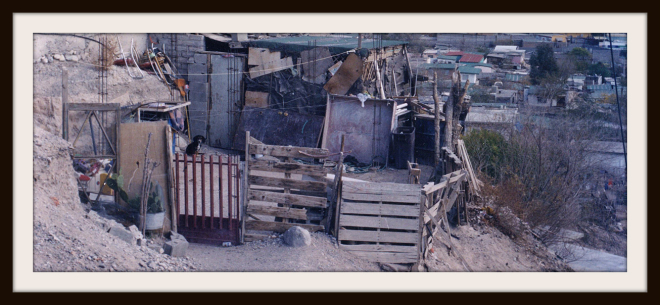
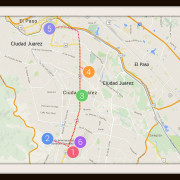
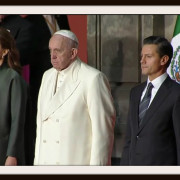
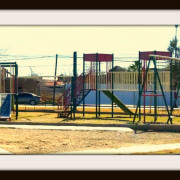
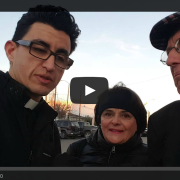
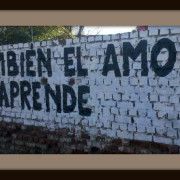
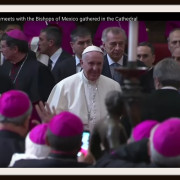



Leave a Reply
Want to join the discussion?Feel free to contribute!